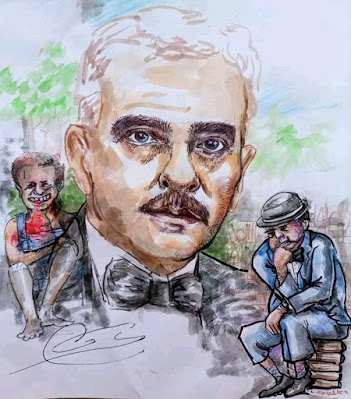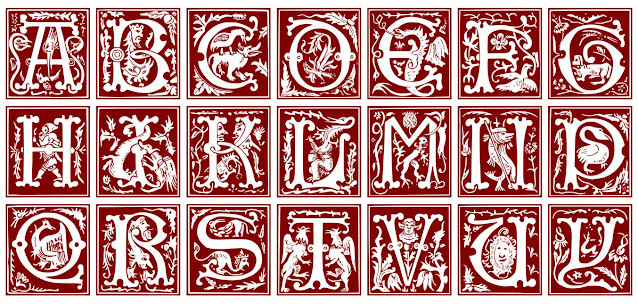The broken teeth
A tale by Pedro Emilio Coll
At the age of twelve, stragelling the boy Juan Peña with some rascals received a pebble over one of his teeth, the blood ran over cleaning his dirthy face, and the teeth broke down like a saw shape.
Since that day, the golden age of Juan Peña began. With the tip of the tongue, Juan touched constantly his broken teeth; the rest of his body still, with a lost look, witouth thinking.
Thereby, from rowdy and quarrelsome became quiet and calm. Juan’s parents, tired of listening to the neighbors and the passersby’s camplaints, all victims from the boy perversities, and exhausted from all kind of unsuccessful reprimands and punishments, were now astonished and anguished with the sudden transformation of Juan.
Juan stood still and he stayed the whole hours in hieratic attitude, like in ecstasy or something; meanwhile, in there, inside the darkness of his closed mouth, the toungue stroke the broken teeth withouth thinking.
- The boy is fine, Pablo -it says the mother to her husband-, we have to call a doctor.
The doctor came home and proceeded to diagnose: Good pulse, bloody cheeks, perfect, excellent apetite, signs of illnesses, cero.
- Lady -the wise doctor ended up saying after a long examination, the sanctity of my profesión incourage me to declare that you…
-What, for god sake doctor? -interrupted the angushed
mother.
-That your son is better than an apple. What is indisputable -continued with a mysterious voice- is that we are in presence of a phenomenal case: your son from your blood, my beloved lady, suffers from what we called nowadays the disease of thinking, your son is an early philosopher, a genious perhabs.
But in the darkness of his mouth, Juan stroke his broken teeth with his toungue, withouth thinking.
Relates and friends stated to listen the doctor’s opinion, received with unspeakable joy for Juan’s parents.
Suddenly, in the whole town settled, the amazing case of the “Prodigy boy”, his fame grew like a paper bombed refilled with air. Even the teacher of the school, the one that considered him the slower thinker of the group, started to believe that what the rest of the people said, like the old saying “where there’s smoke, there’s fire”. So each and everyone, brought a story related: Demostenes ate sand, Shakeapeare was a ragged urchin, Edison… etc.
Juan Peña grew up full of open books in front of his eyes, but he never read them, distracted by his tongue, busy striking the small saw of his broken teeth, withough thinking. And with his body, his reputation grew up, as a reasonable man, wise and “deep”. And nobody could stop prasing the Juan’s magnificent tallent. In his own youth, the most beautiful women tried to seduce and conquer him, who was given over to great meditations, for others, but in the darkness of his mouth stroke the broken teeth, withouth thinking.
Like this, spent months, years, and Juan Peña became a deputy, academic, minister, and he was at about to be crowned President of the Republic, when the apoplexy surprised him striking his broken teeth with the tip of his tongue. The bells were tolled and national duel was decreed; an speaker cried in a funeral prayer in the name of the nation, and some roses and tears were fallen over the tomb of the great man that hadn’t actually took the time to think.
Translated by: Mirih Berbin
Pedro Emilio Coll
Writer and journalist. He was born on July 12, 1872 in Caracas. From a very young age he had contact with writers of the time, since his father was the owner of the Bolívar Press. At the age of 22 he founded, with Luis M. Urbaneja Archepohl and Pedro César Domínici, the magazine “Cosmópolis”. He was also a collaborator of "El Cojo Ilustrado", where he published many of his stories, including El Diente Roto. He died on March 20, 1947. Works: Words (essays, 1896), The Castle of Elsinore (essays, 1901), The divine persons (short stories, 1925), The hidden path (essays, 1927), Readings and glosses of Venezuelan writers (1929), the wandering step (anthology, 1948).





Comentarios
Publicar un comentario